Da Nang hosts national conference on judicial reform to build law-governed socialist State
A national conference themed ‘Continuing to enhance the effectiveness of judicial reform to meet the requirements of perfecting the law-governed socialist State of Viet Nam by 2030 with a vision towards 2045’ was held in Da Nang on Monday.
 |
| State President Nguyen Xuan Phuc and some leaders of the Party and State co-chaired the national conference. Photo: N.P |
In his opening remarks, Chairman of the National Assembly Vuong Dinh Hue said that this was the second national conference held by the steering committee for drafting a strategy for building and perfecting the law-governed socialist state of Viet Nam by 2030 with a vision towards 2045. The first event took place on December 11, 2021.
He added that developing a judicial reform strategy was one of the key tasks of this work and also an urgent issue in the current context.
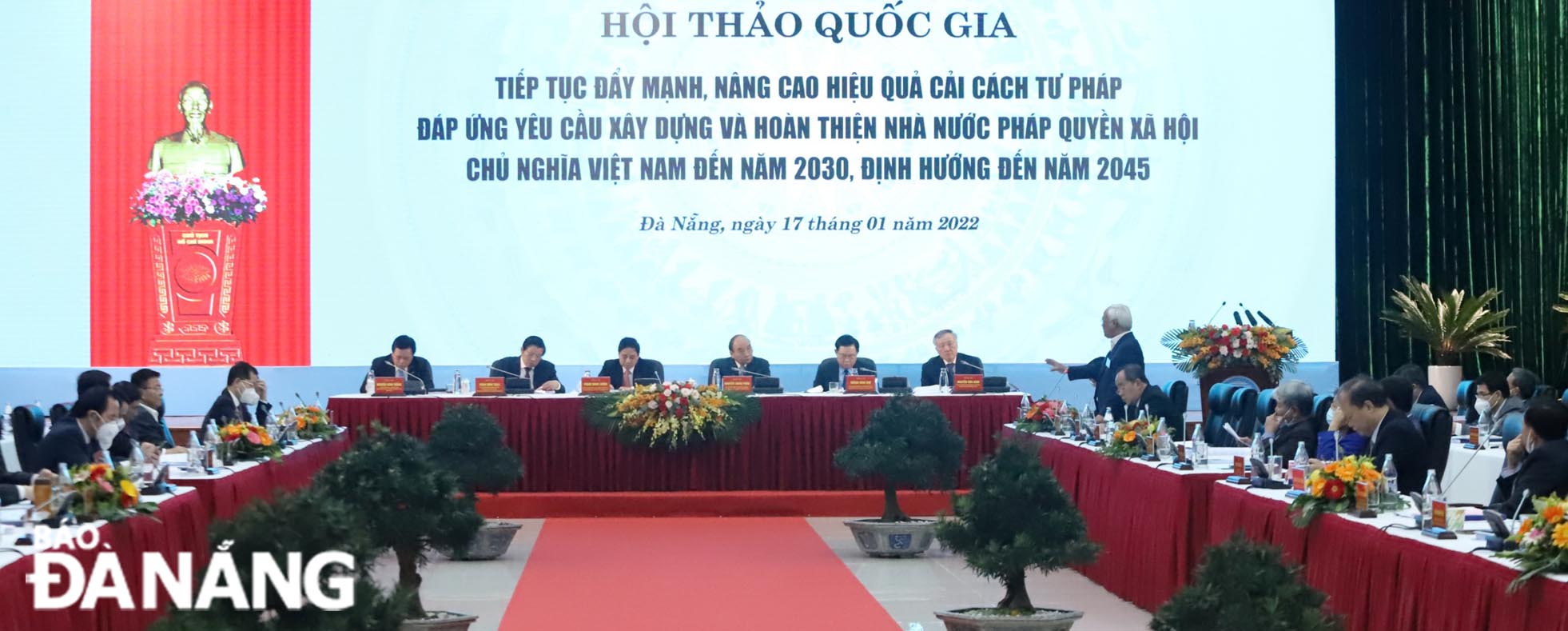 |
| The national conference in progress. Photo: N.P |
After 15 years of implementing the Politburo’s Resolution No. 49 on the judicial reform strategy by 2020, many significant outcomes have been recorded, he said, elaborating that the judicial sector has made a great stride in protecting justice, human rights, citizens’ rights, the State’s interests, as well as legitimate interests of organisations. The law making and completion have basically managed to institutionalise the Party’s guidelines on judicial reform.
However, the top legislator also pointed out certain problems, adding that strong impacts of the Fourth Industrial Revolution and the country’s intensive and extensive integration into the world require judicial reform be further enhanced to better meet requirements in the new context.
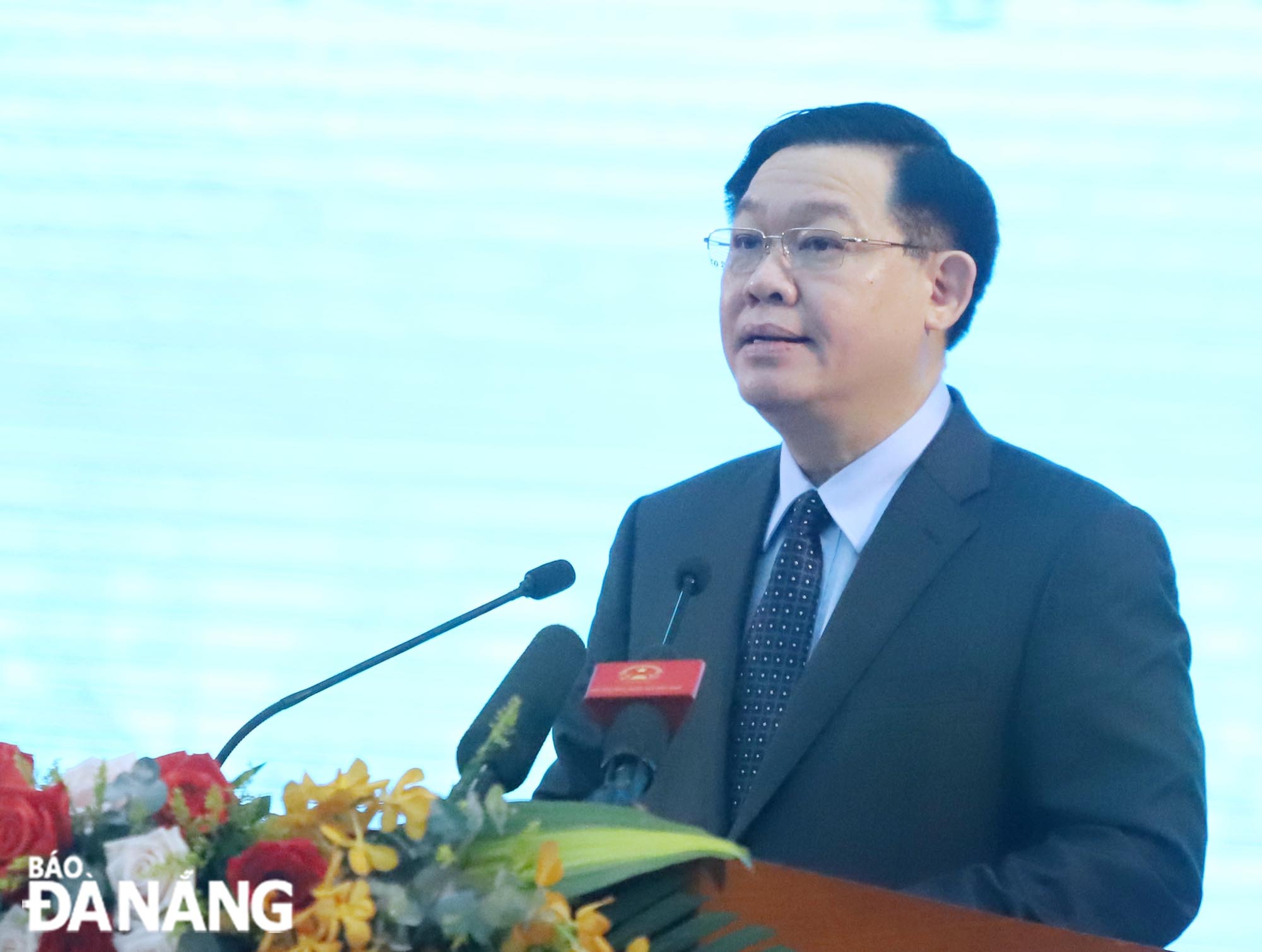 |
| Chairman of the National Assembly Vuong Dinh Hue delivering his opening speech |
Chairman Hue, therefore, emphasized the need for the participants to exchange and discuss solutions to effectively overcome current difficulties, obstacles, limitations and inadequacies in the implementation of Resolution No. 49. Also, top priority should be given to identifying breakthrough and strategic solutions on judicial reform over the periods of 2021-2030 and 2030-2045 in a bid to build a truly professional, modern, fair, strict, and integrity judiciary.
Listening to well implement urban government model
In his welcome speech at the event, Secretary of the Da Nang Party Committee Nguyen Van Quang expressed his delight at Da Nang being chosen to host the national conference. He also highlighted the implementation of the new judicial reform strategy was an important basis for the Central Committee to consider and issue a resolution on a strategy for building and perfecting the law-governed socialist state of Viet Nam by 2030 with a vision towards 2045.
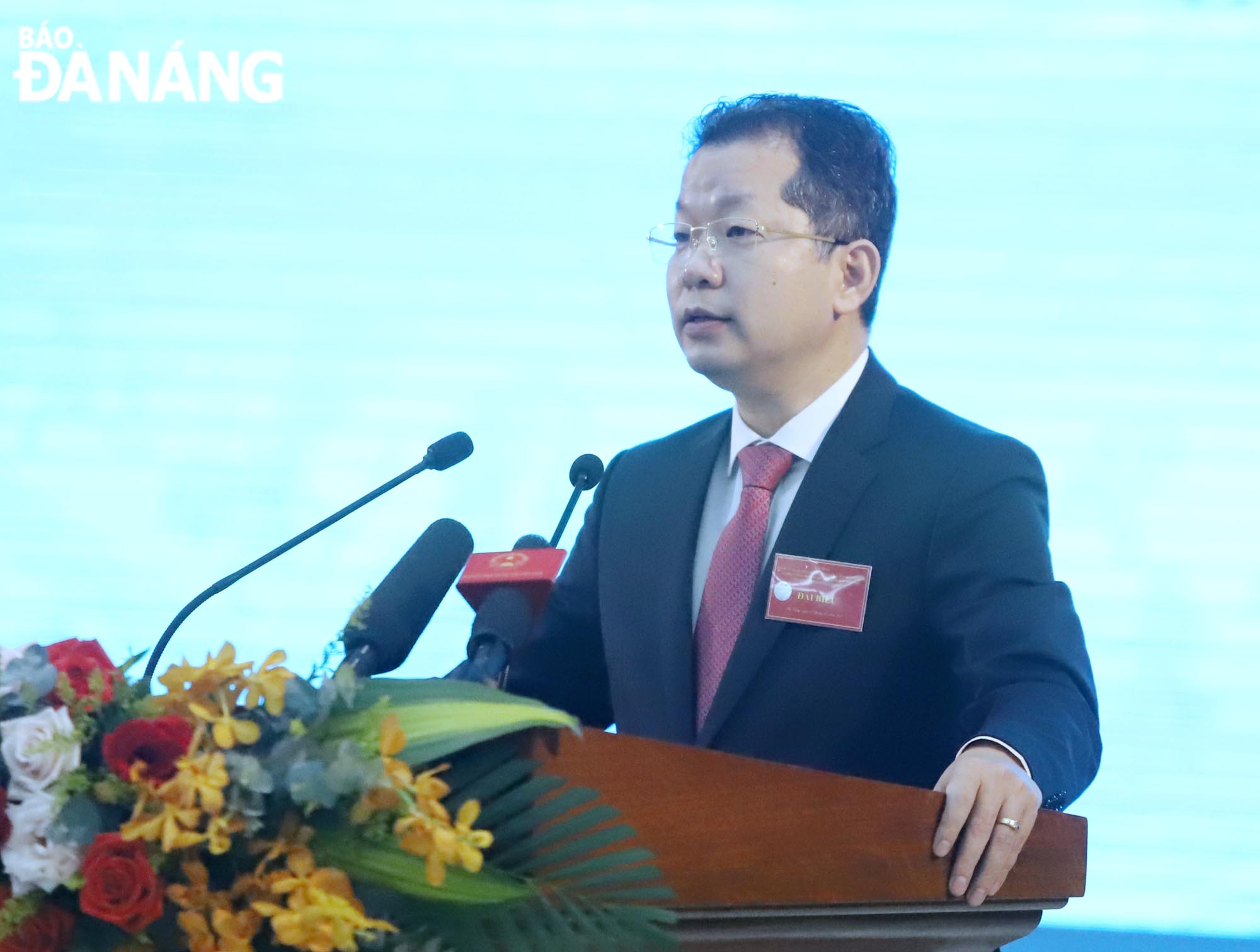 |
| Secretary of the Da Nang Party Committee Nguyen Van Quang delivering his welcome speech at the event |
Secretary Quang remarked that the national conference provided a huge opportunity for Da Nang to listen to constructive ideas to perfect its urban government model being implemented in the spirit of National Assembly’s Resolution No. 119/2020/QH14 and National Government’s Decree No. 34/2019-ND/CP, which raised many issues about the supervision mechanism of the municipal Council for the district-level judicial agencies when there are no district-level People's Councils.
Secretary Quang said that in 2021, Da Nang directed judicial agencies to renew their operation methods, reform the judicial system, enhance the efficiency of activities in the fights against violations and crimes, especially those emerging from the COVID-19 pandemic, and overcome the shortcomings and limitations pointed out in the conclusions of the inspections, examinations, audits and judgments.
“Being the host of the national conference with the participation of the State President, Prime Minister, President of the National Assembly, Politburo members, members of the Party Central Committee, and other delegates is a great encouragement for the Party Committee, government and people of Da Nang to successfully fulfill the year’s socio-economic development tasks and the following years, thereby contributing to building Da Nang into one of the large socio-economic hubs in the whole country", emphasized Secretary Quang.
Proposals for sake of an increasingly professional and modern judiciary
During the event, participants contributed their constructive ideas and proposed solutions for sake of building an increasingly professional and modern judiciary in order to meet the requirements of building and perfecting the State in the coming time.
 |
| Prof. Dr. Vo Khanh Vinh, Member of the Scientific Council of the National Assembly Standing Committee and former Vice President of the Viet Nam Academy of Social Sciences, speaking at the event |
Prof. Dr. Vo Khanh Vinh, Member of the Scientific Council of the National Assembly Standing Committee and former Vice President of the Viet Nam Academy of Social Sciences, noted judicial reform must be placed under the Party’s comprehensive leadership and firmly maintain the nature of a law-governed socialist state of Vietnam that is of the people, by the people, and for the people.
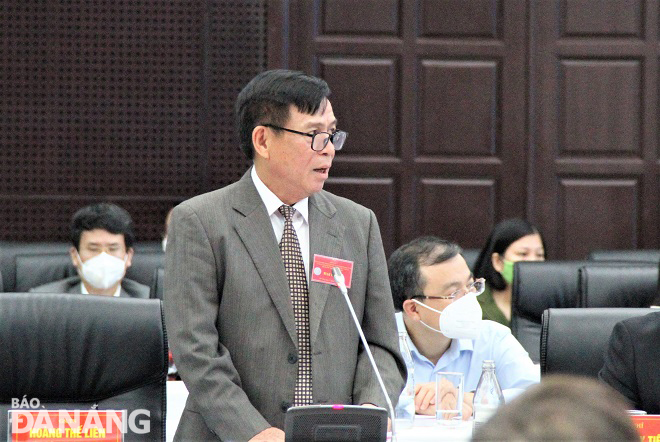 |
| Prof. Dr. Hoang The Lien, former Permanent Deputy Minister of Justice, presenting his ideas at the event |
Prof. Dr. Hoang The Lien, former Permanent Deputy Minister of Justice, said that judicial reform must be carried out in tandem with legislative and administrative reform to guarantee that the State power is consistent, with task assignment, coordination, and control among State agencies in exercising the legislative, executive, and judicial powers
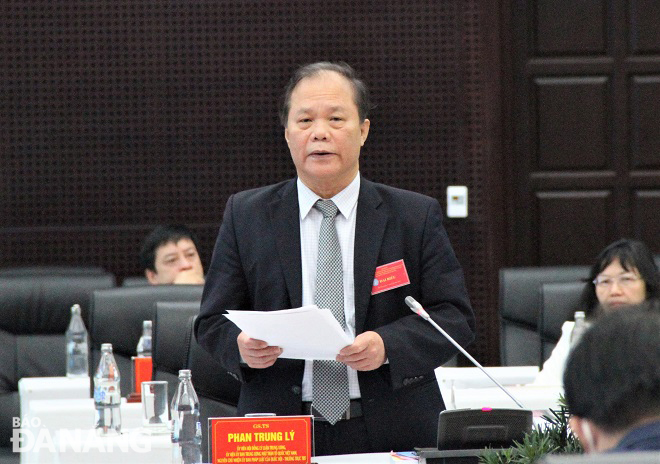 |
| Prof. Dr. Phan Trung Ly, Member of the Central Theoretical Council and former Chairman of the National Assembly's Law Committee, speaking at the event |
Prof. Dr. Phan Trung Ly, Member of the Central Theoretical Council and former Chairman of the National Assembly's Law Committee, proposed some solutions to improve the mechanism of controlling State power in the exercise of judicial rights, with a focus on building a model of the National Judicial Council and establishing a regional court of first instance or a court in every district cluster in a bid to solve many common problems in the organization and operation of the current district courts.
Reporting by NGOC PHU, LAM PHUONG - Translating by M.DUNG